For the birthday of Taras Shamba, the man with whom the World Abaza Congress began to exist, the WAC web information portal prepared an essay on him.
Arifa Kapba
Abkhaz and Russian public and political figure Taras Shamba was at the origin of the World Abaza Congress, the Moscow Abkhaz Diaspora and made great efforts to unite the Abaza people.
He was born on July 29, 1938 in the family of the honored lawyer of Abkhazia Miron Shamba, who at various times was both a prosecutor and a judge, became Chairman of the Supreme Court of Abkhazia and President of the Bar Association of Abkhazia. Together with his wife Lydia Eshba, they raised two sons, Taras and Sergey, and a daughter, Eteri.
Youth hobbies
Taras was born in Sukhum, but his father had to move frequently, of course, with his family and children. Finally, they settled in Sukhum when Taras was already in high school.
Taras Mironovich’s brother, Sergey Shamba (Abkhaz political and statesman, ex-prime minister of Abkhazia and ex-foreign minister of Abkhazia - ed.), says: “We lived opposite the current Leon hotel in Sukhum, we always had many people at home, friends of Taras. I remember how they bought the first tape recorder, which was a rarity then. And our tape recorder was also unusual: it played records and reels, one over another (“reels” with magnetic tape - ed.), which somehow were spinning in different directions. It was called “Elfa”.
The house where the Shamba family lived was located almost on the bank of the Basla River. This is how Taras Mironovich himself recalls these times of youth in the TV program of Ekaterina Bebia “The Shining Path to the Stars. Taras Shamba” : “There was a very good boat station, where we took eight and twelve boats, and swam out of the river into the sea, therefore we had a chance to sail and row. Not far from the house there was also the Palace of Sports, where we were engaged in various kinds of sports, and I have seven sports classes, and I was constantly engaged: I ran uphill one day, and the other - to the sea, and swam.”
Idol for the brother
Taras was thirteen years older than Sergey, and therefore they didn’t have common children’s games, but his older brother was always a standard and a vivid example in everything for Sergey.
“Taras and his friends always invented something, something around them happened all the time. For me, it was the youth elite of Abkhazia, which I wanted to imitate, to be like them, - said Sergey Shamba. - When I matured, we began to discuss political issues. From all of this I was also charged with this energy, I fled to the philharmonic where people gathered (referring to various meetings and actions for upholding the rights of the Abkhaz people, organized by the forces of the national liberation movement - ed.). Since then, I have been worried about the thoughts associated with the national liberation movement, with the injustice that our people faced. I think it was the influence of the elder brother that made me enter the faculty of history.”
Taras Shamba himself, having graduated from the tenth Sukhum Mountain School, being a well-read, intelligent and bright young man, entered the law faculty of Moscow State University. He organized the first Abkhaz community in Moscow, when he was still a student. In fact, it was the Abkhaz youth center, there were a lot of those who later actively defended the rights of the Abkhaz people.
Student and fraternity
The first such meetings took place on the basis of the Gorky Literary Institute, where many future Abkhaz writers studied at that time.
Here is how Taras Mironovich himself recalls this in the TV show: “Then Alyosha Gogua studied there (in the future the well-known Abkhaz writer - ed.), Volodya Ankvab (in the future, a famous philologist, teacher - ed.), and we began to hold monthly meetings in the university hostel. The university administration was aware about these gatherings of the Abkhaz were. We always had the following agenda: we chose a literary work of a writer or author who came to Moscow, he was invited and through the prism of his work spoke about the history and culture of Abkhazia, about the language, about the need to publish his journal, his newspapers, his television.
It was from this community that the big Moscow Abkhaz Diaspora later grew, which Taras Mironovich Shamba headed until recently, when he was replaced by Beslan Agrba.
“I have my own way”
In 1973, Taras Shamba entered the graduate school of the Academy of Social Sciences under the Central Committee of the CPSU. “Having finished it,” the brother recalls, “he had to return to Abkhazia, but the rector of the academy called him to himself and said: you have no prospects in Abkhazia, you are listed as an Abkhaz nationalist in Georgian political circles, stay here. And he offered him a job at the academy.”
By that time, Taras had already packed things, his parents were waiting at home, confident that their son would return to his homeland. Mother thought that at least a janitor, but he must return to live in Abkhazia. However, the son has always done everything in his own way, since childhood.
So, for example, while still studying at the Mountain School No. 10, Taras went to the May Day parade, holding in his hands a photograph of Nestor Lakoba, the Abkhaz leader repressed in 1937. By that time, the name Lakoba had already been rehabilitated, but it was still a challenge and protest to appear with a portrait of a national hero at the parade. The young man, the clear leader in the class, of course, received support from school friends and comrades. But his father was very quickly informed about how his son tried to “disrupt” the parade procession. Miron Shamba, having come home with another party official, wanted to reprimand his son for his willfulness, but the guy calmly and firmly said: “I have my own way, you have your own, do not bother me, please.”
Also, in his own way, he remained in Moscow, at the academy, where he went from a teacher to a professor of the department of state construction and law, defended his thesis “Law enforcement agencies in the system of state structure.” Later, in 1995, he defended his doctoral thesis on “Democracy and the rule of law in a socialist society”.
As a scientist, doctor of law, Taras Shamba is a full member of eight public academies. From 2002 to 2008 he was the first vice-rector of the Russian State University of Trade and Economics. The circle of scientific interests of Shamba is the theory and practice of the state, democracy and the rule of law. He is the author of numerous publications and papers on these topics.
Taras Shamba is the author of the fundamental work “Abkhazia. The legal basis of statehood and sovereignty.” He took an active part in drafting the modern Constitution of the Republic of Abkhazia. Shamba has the title of Honored Lawyer and Honorary Lawyer of Russia.
Head of the Congress
From the very young years, the life of Taras Shamba was subordinated to what the entire progressive part of the Abkhaz society thought about - the independence and self-determination of the people. Taras Mironovich managed to show his organizational and diplomatic skills most vividly when the war began in Abkhazia and it needed support from outside more than ever.
Then, at the height of the 1992-1993 Patriotic War, the International Association of the Abkhaz-Abaza People was created (IAAAP, now the World Abaza Congress - ed.).
It happened this way: in October 1992, the first World Congress of the Abkhaz-Abaza people was held in the historical glade of Lykhnashta.
Taras Shamba was elected President at this congress. Since then, he has been entrusted with the unofficial title of “President of all Abkhaz”, since the congress united all representatives of the Abaza people.
“We were able to gather representatives from about 20 states and hold the First World Congress in Lykhnashta. Our goal at that time was very clear, to win this difficult war for us, and we won, and the second congress was held in the liberated capital of Abkhazia,” said Taras Mironovich in an interview to Sputnik Abkhazia.
Taras Shamba was one of those people who openly recognized the commonality of the Abkhaz-Abaza people. Through his activities, he has always contributed to the rapprochement of the Abkhaz, in whatever geographical point of the world they live. Shamba actively supported the idea of creating a single alphabet for Abkhaz and Abaza.
“For all these years, we have admired his activities to unite this one people, and he succeeded. We sincerely thank him for everything. If you only knew that for every Abaza, Taras Mironovich is a legend. This is a national love,” argues in the documentary film “Taras Shamba. People's President”, Professor Yury Agirbov.
Taras Shamba has repeatedly led the Abkhaz delegation’s visits to various countries where the Abkhaz-Abaza Diaspora lives. Wherever he appeared, he, as a person with whom was associated the revival of lost ties between the Abkhaz, was received very cordially and with great honor.
The Ambassador Extraordinary and Plenipotentiary of Abkhazia to Russia Igor Akhba, who was on such trips with Shamba, said: “The number of Abkhaz outside Abkhazia, alas, is much bigger, first of all in Turkey and other countries of the Middle East. I watched what was happening: when Taras Mironovich appeared somewhere, he was always enthusiastically received, with applause, as a person who deserves trust.”
All contacts in favor of Abkhazia
When 27 years ago, on August 14, 1992, Georgian troops entered Abkhazia, Taras Shamba, like many other true sons of the fatherland, could not remain indifferent. But not everyone had such extensive connections and access to the right people like him.
“As soon as the war began in Abkhazia, Taras began to act very actively, to travel to the North Caucasus, to establish all sorts of connections. His actions largely contributed to the fact that the leadership of these republics “turned a blind eye” to the actions of young people who volunteered to go to Abkhazia, from there began humanitarian aid and support of a different kind. Here Taras’s personal contacts really played a role, for he knew many party leaders in the Caucasus who had studied at the Academy of Social Sciences in their time. He had many important and influential friends throughout the Soviet Union,” notes Sergey Shamba.
After the war, many issues in Moscow related to Abkhazia were resolved through him or with his participation. The office of Taras Shamba on 10 Bolshaya Sadovaya - in the so-called “Bulgakov’s” house - was the unofficial embassy of Abkhazia in Russia even before the recognition of the independence of the Republic occurred. Everyone who was not indifferent to the fate of the Abkhaz people gathered there to discuss issues and solve problems.
Taras Shamba vividly represented Abkhazia outside its borders. So, in June 2013, he headed a large delegation of Abkhaz and Abaza who were invited to the Brussels European Parliament to participate in a unique conference, the topic of which was: “Abkhazia and Europe: ways of mutual understanding and rapprochement”.
Touching on the recent historical past of Abkhazia in his speech, Shamba said: “Not a single Caucasian people supported the Georgians. All the peoples of the Caucasus took the side of Abkhazia, moreover, even the Georgians fought on the side of Abkhazia, and even the war heroes were Georgians who fought against the Georgians.”
It should be noted that Taras Shamba at the same time is a man of the most peaceful views. He always emphasizes that he grew up in a multinational region, where all nations were treated with respect. On the eve of the PWPA, Taras Shamba proposed a draft document for consideration, which could become the basis of a peace agreement and coexistence with Georgia, but the Georgian leadership did not have a desire to resolve the issue peacefully.
People person
Every year on April 29, people who cherish the memory of Taras Mironovich remember him all over the world. Many years ago, having retired from all the main affairs of his life, he handed over the reins of government to younger leaders. One of his last initiatives, which the young people raised by him were pleased to support, was the annual participation of representatives of the Moscow Abkhazian Diaspora in the “Immortal Regiment” action on May 9.
Shamba has always been the people person, a man around whom many people of different ages gathered. His sociability and openness captivated absolutely everyone.
The grandchildren Anastasia and Denis and, of course, the daughters Nazira and Gayana are proud of their grandfather. Taras Mironovich - loving father and attentive spouse. According to the daughters, dad and mom always had a very warm relationship.
“Once I came home on the eighth of March, and there were two bouquets of flowers,” recalls the daughter Nazira. - I tell my dad: why two? And he answered: one was in the bedroom, and the other in the kitchen, because mother, like any woman, spends a lot of time in the kitchen.”
Whoever talks about him or shares his opinion about Taras Mironovich, the words “wise”, “honest” and “charismatic” are always used. He himself admited that during his life he tried never to do evil to anyone, and he considers friends his main wealth, whom he’s got a lot.
References:
• Television film “Taras Shamba. People's President "
• Television film “The bright path to the stars. Taras Shamba.
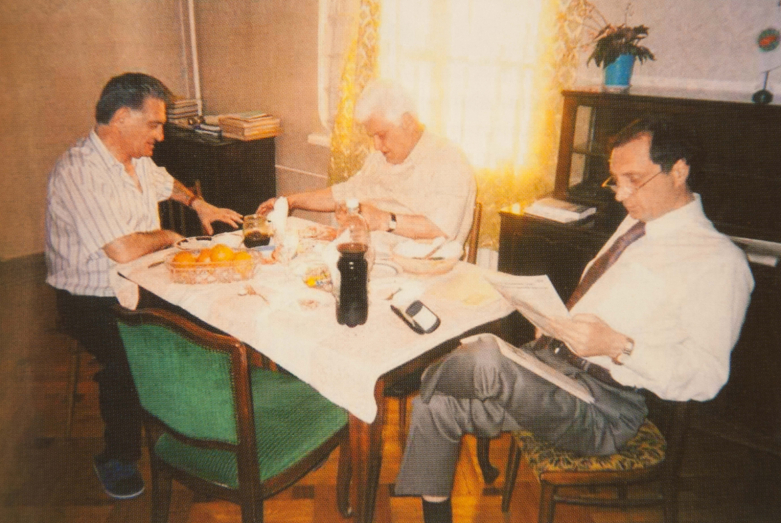
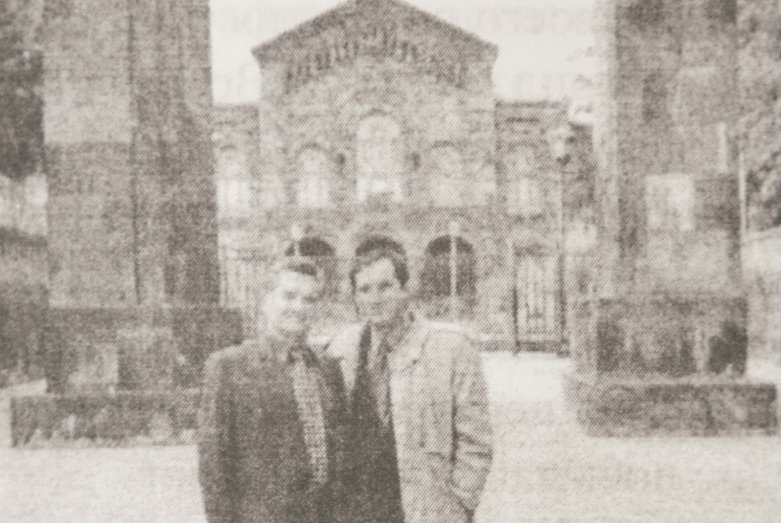
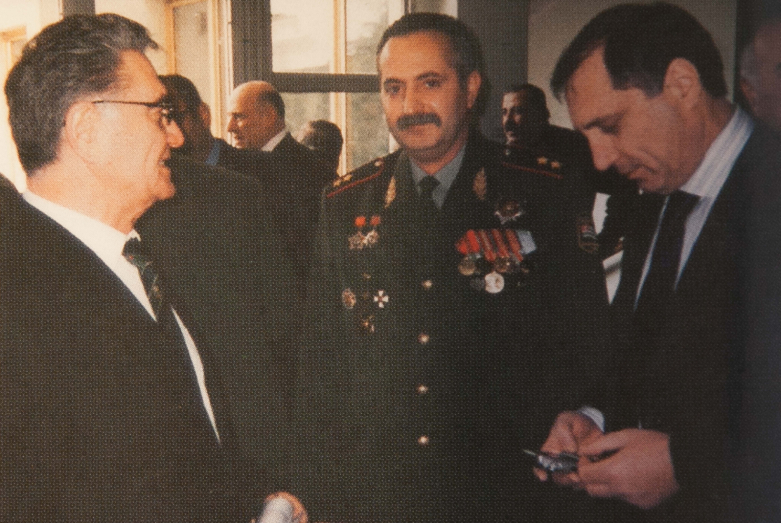
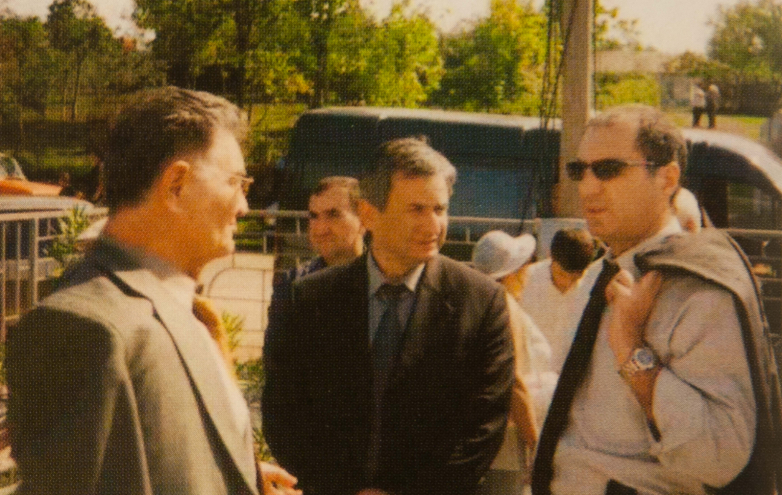
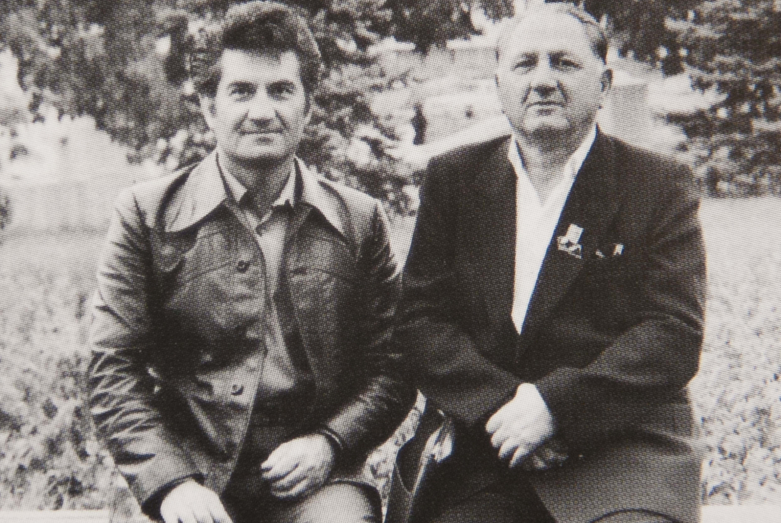
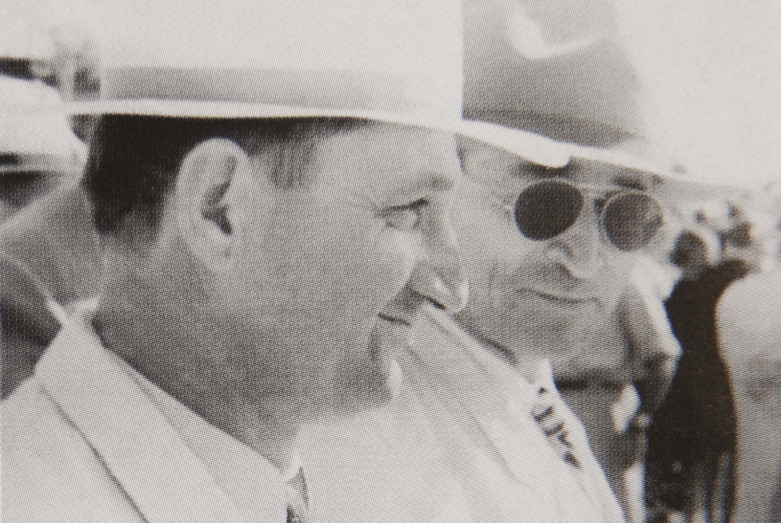
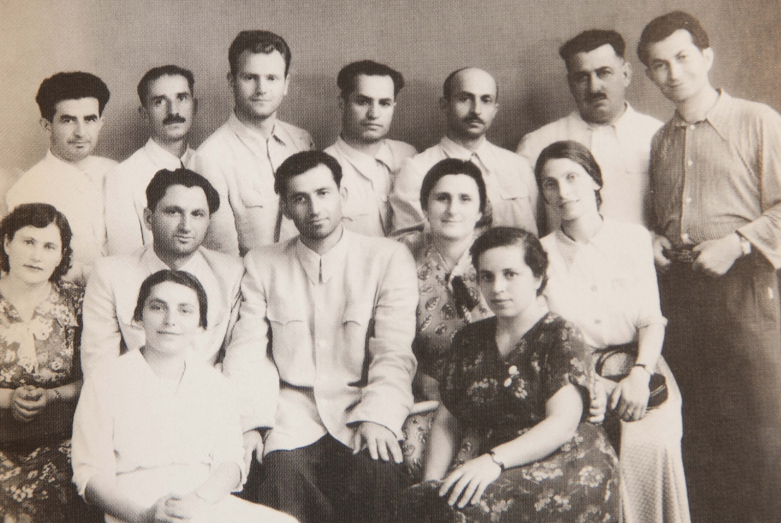
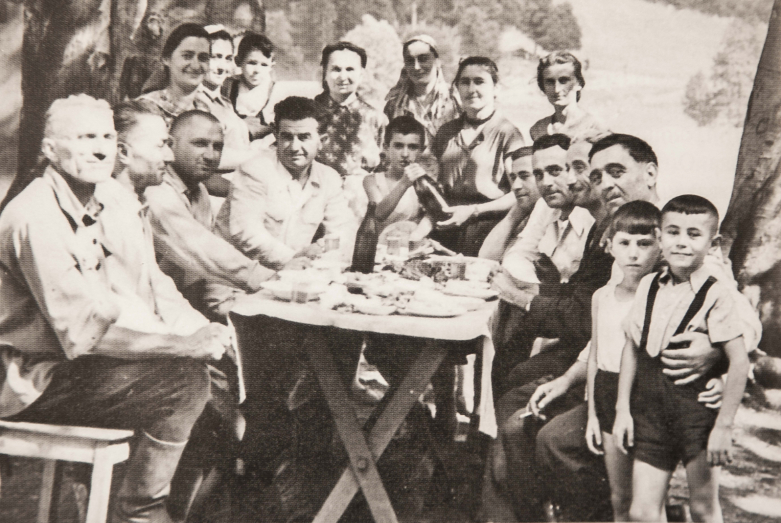
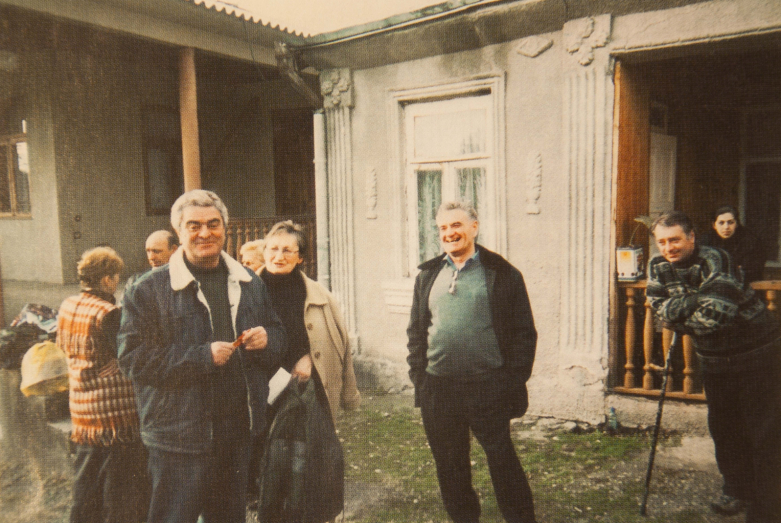
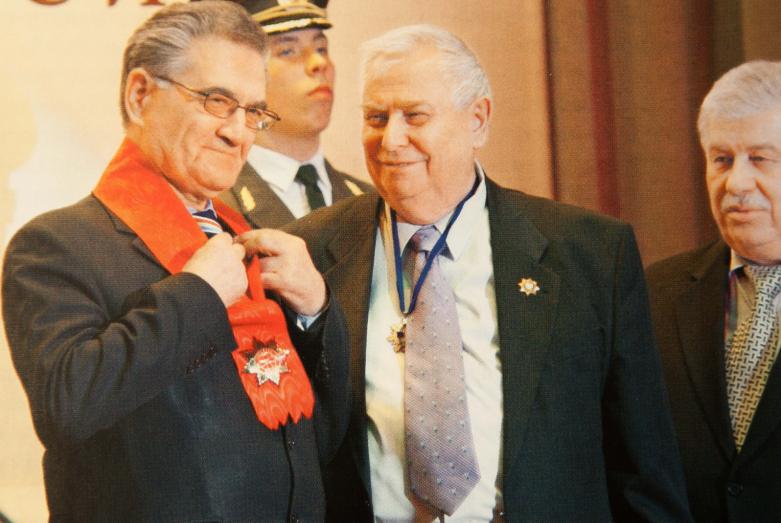
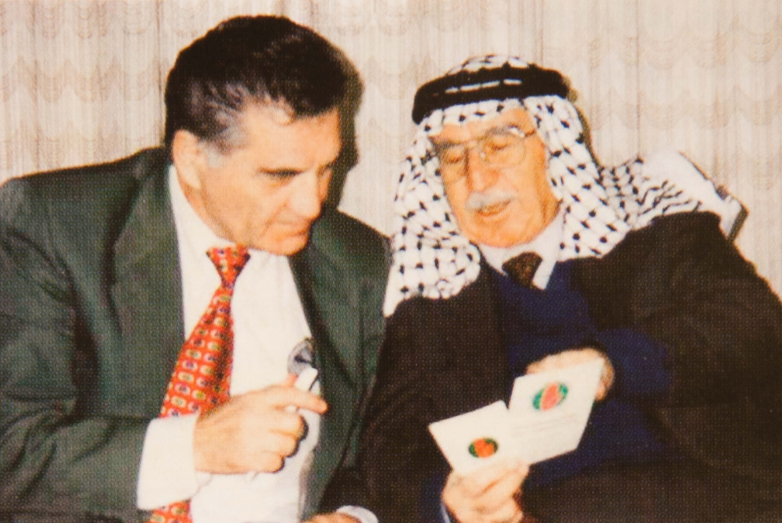
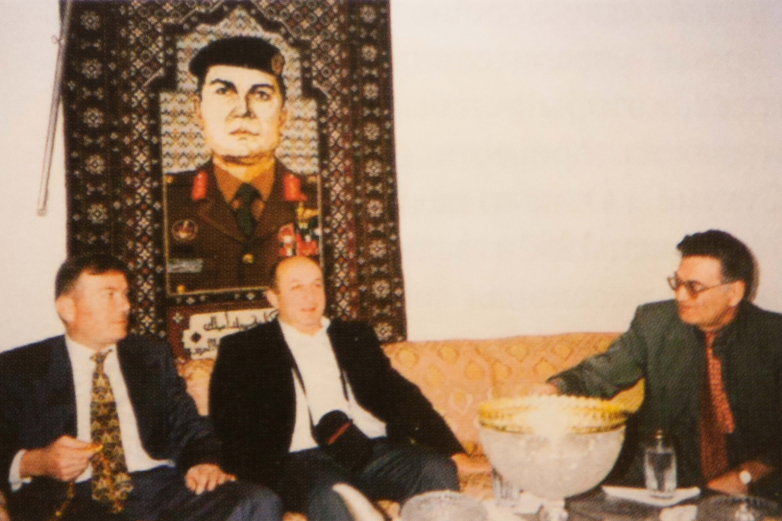
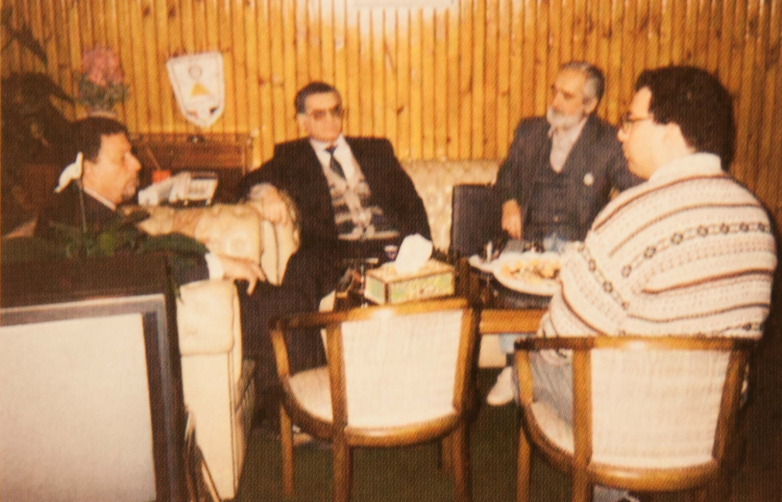
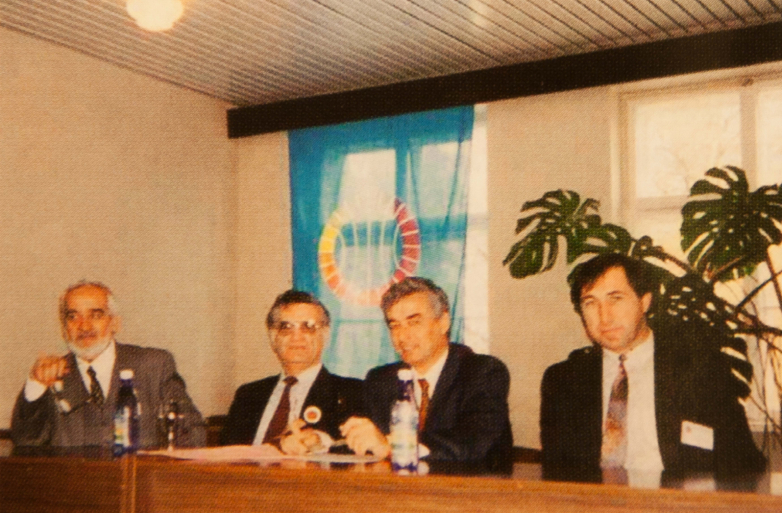
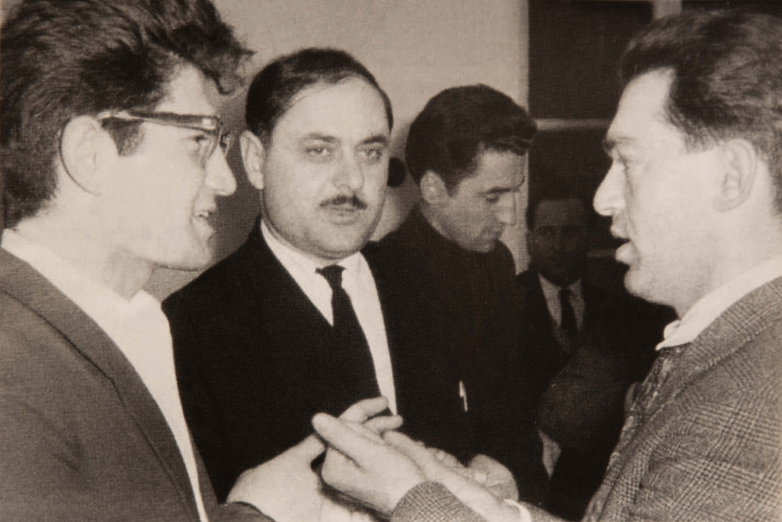
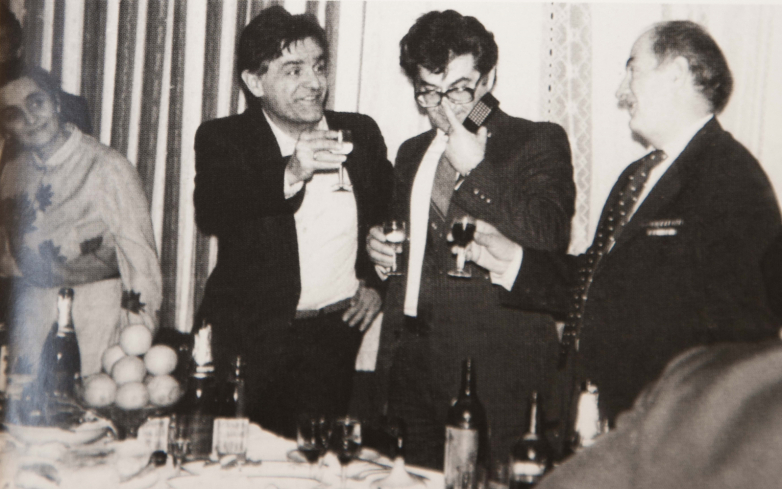
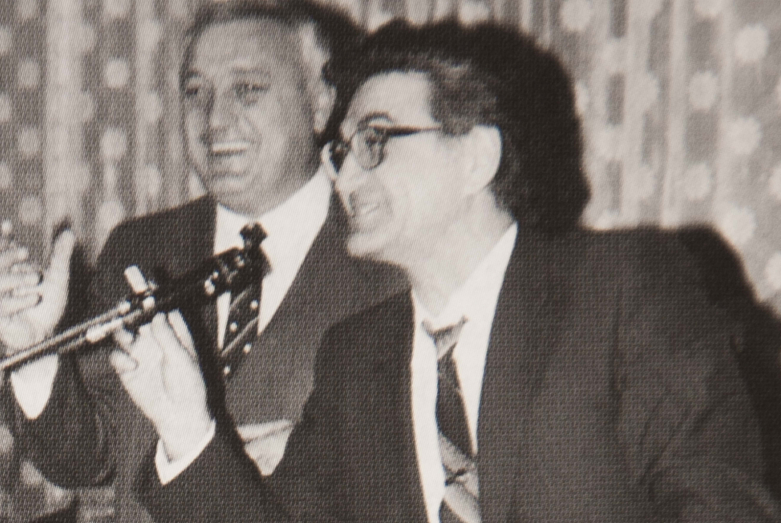
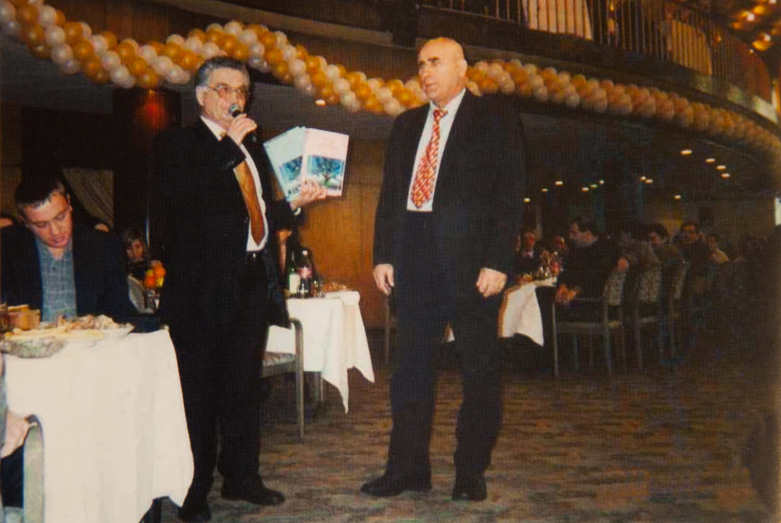
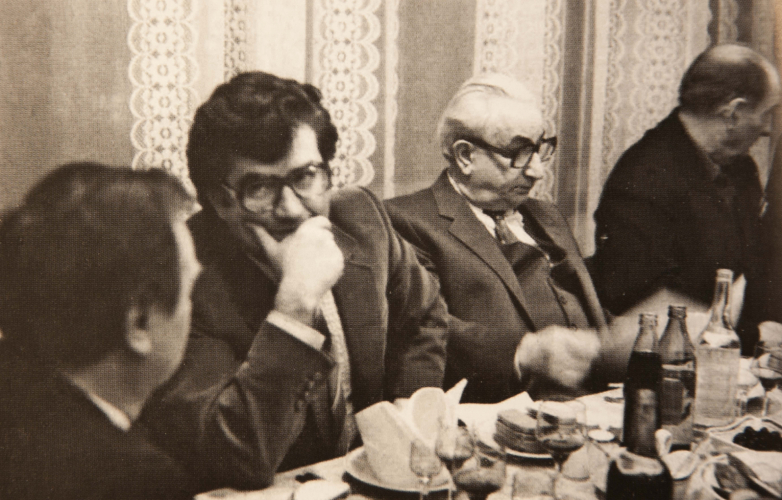
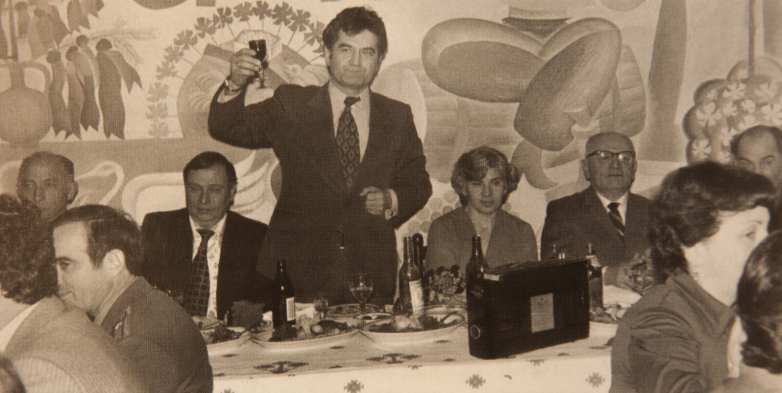
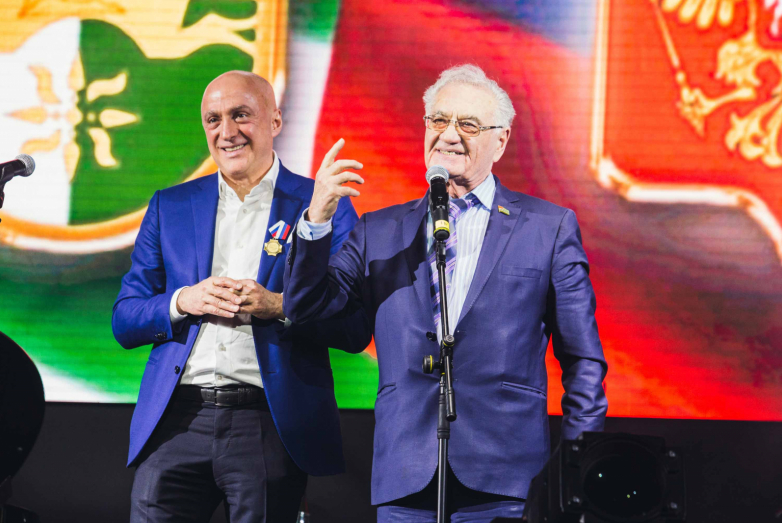
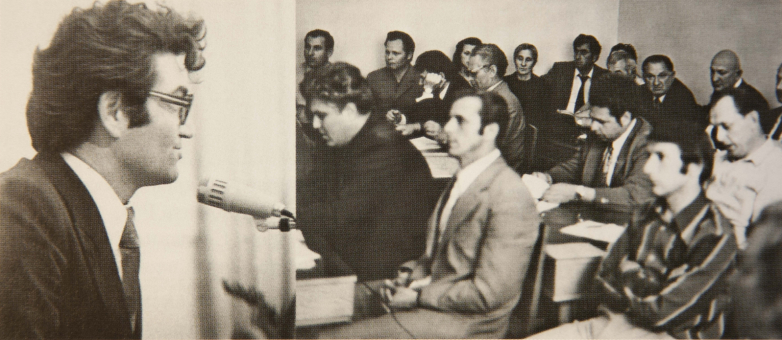
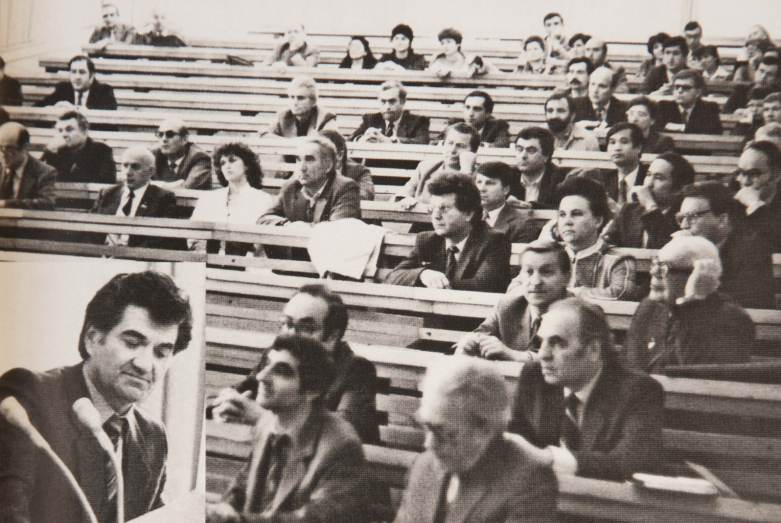
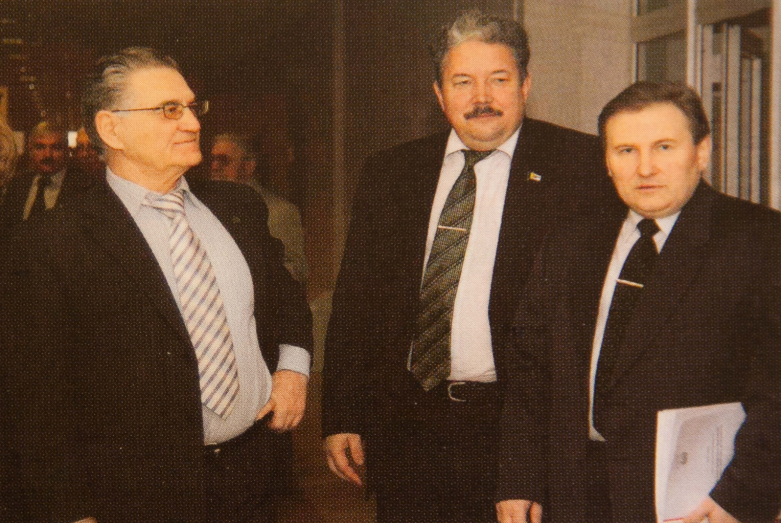
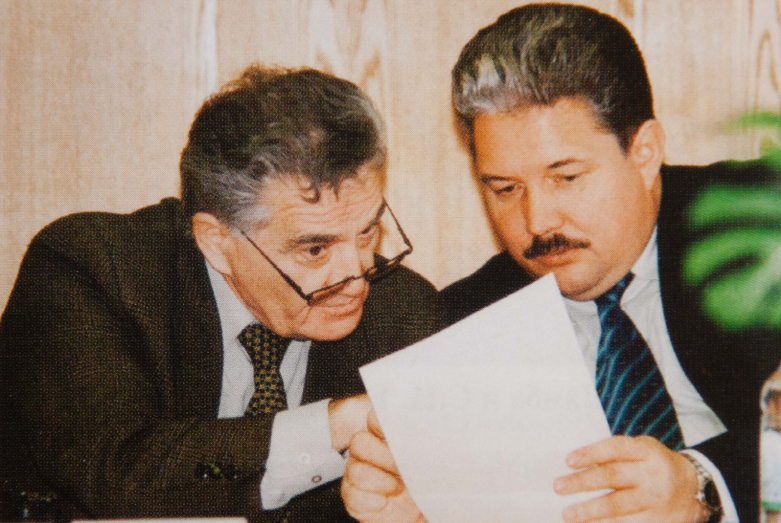
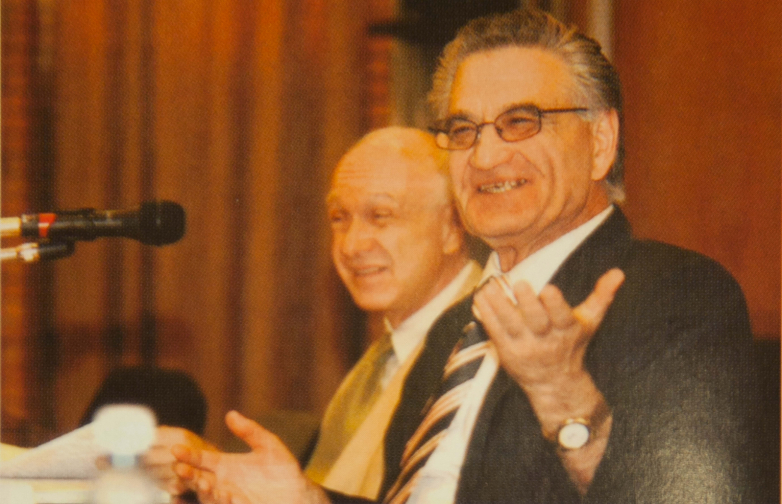
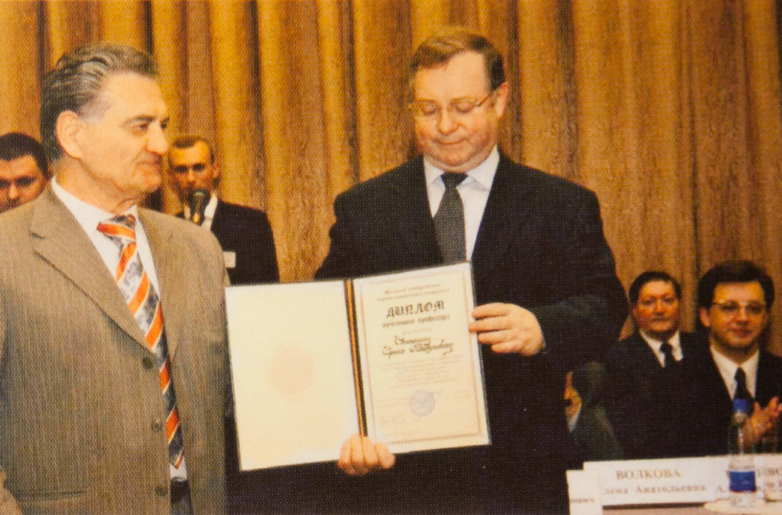
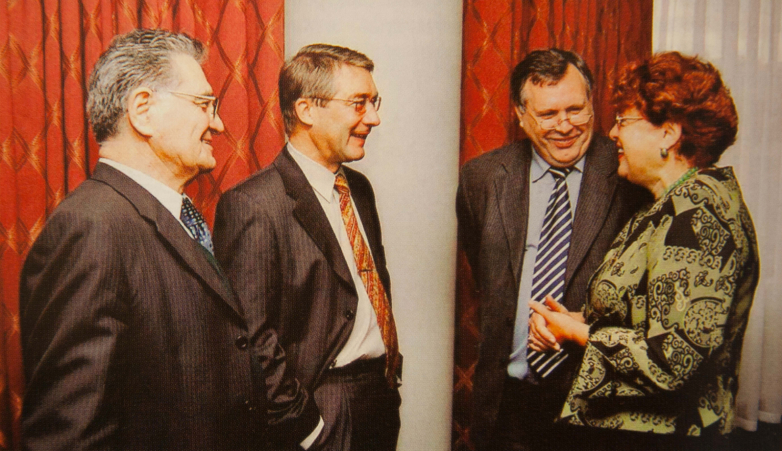
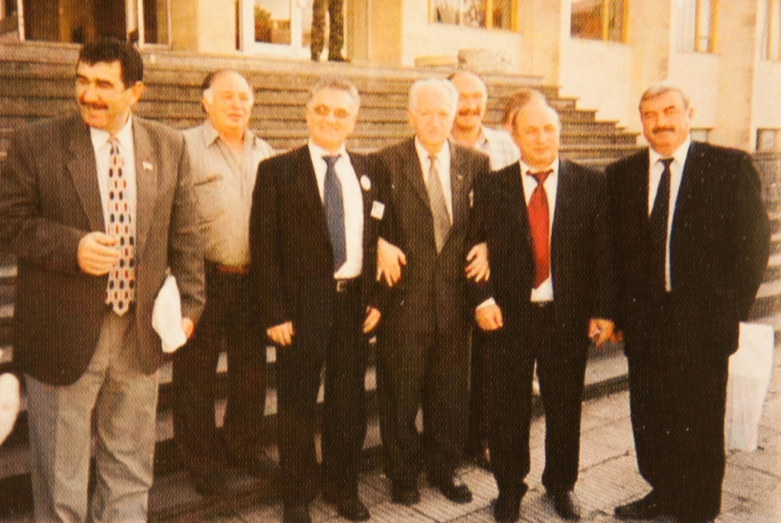
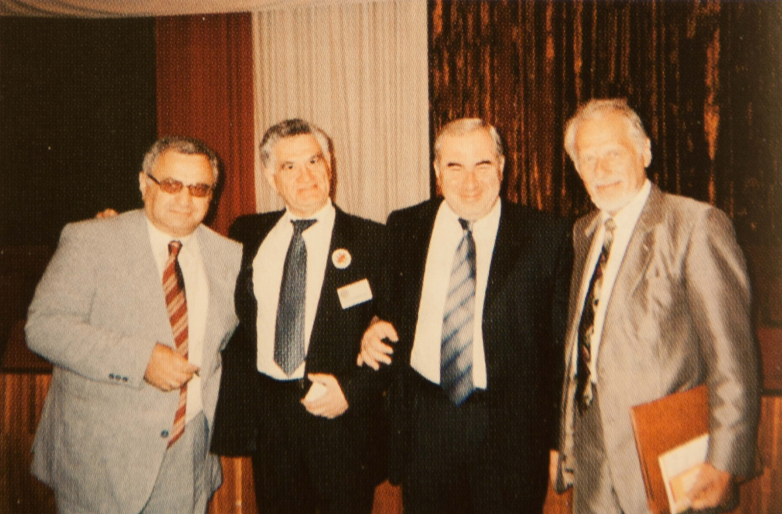
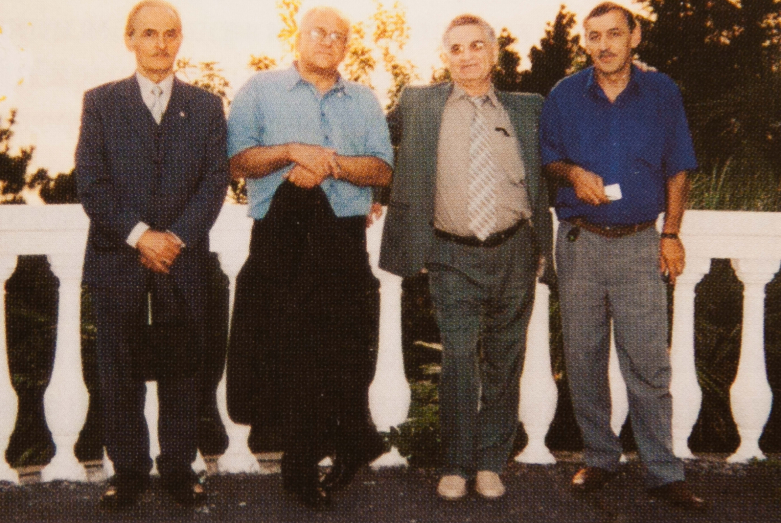
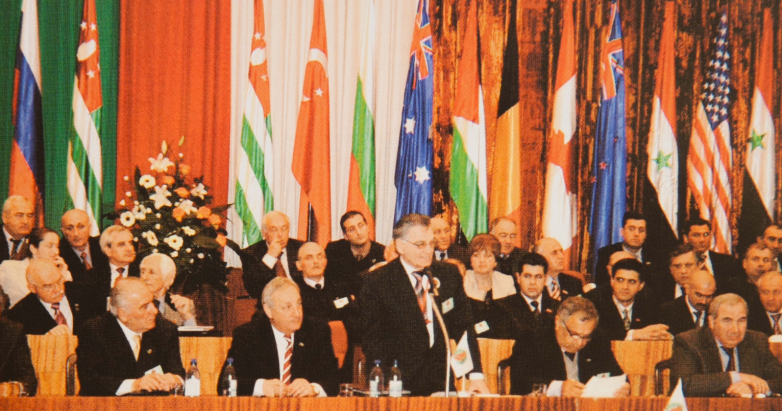
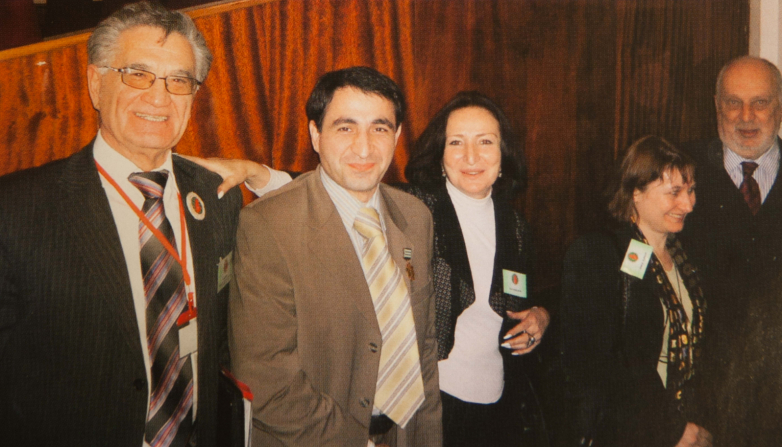
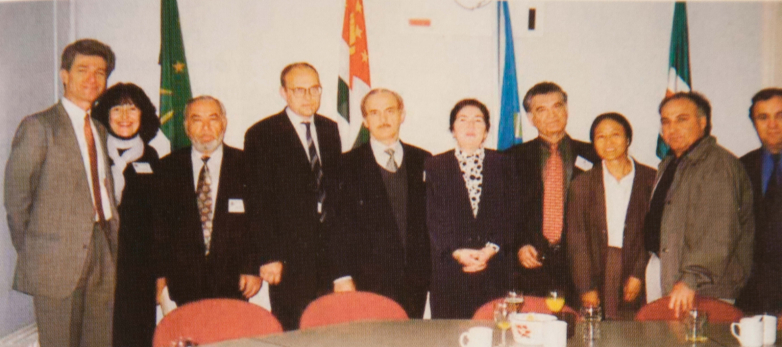
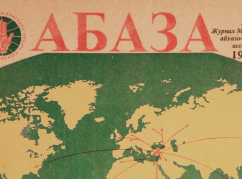
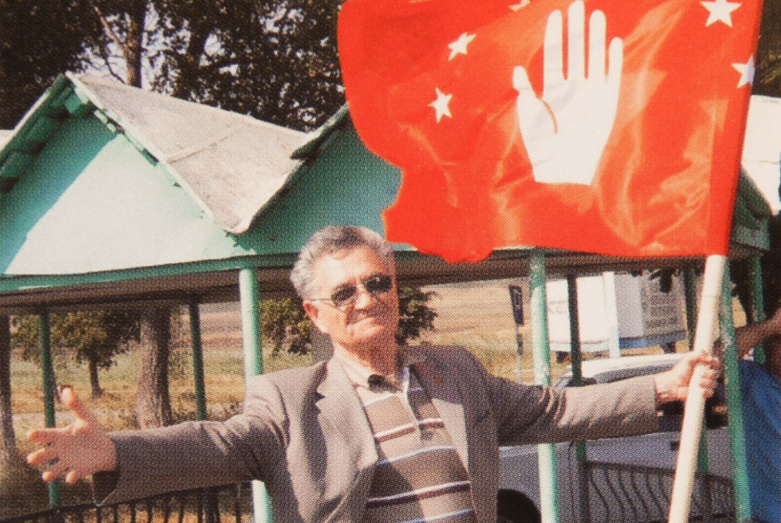
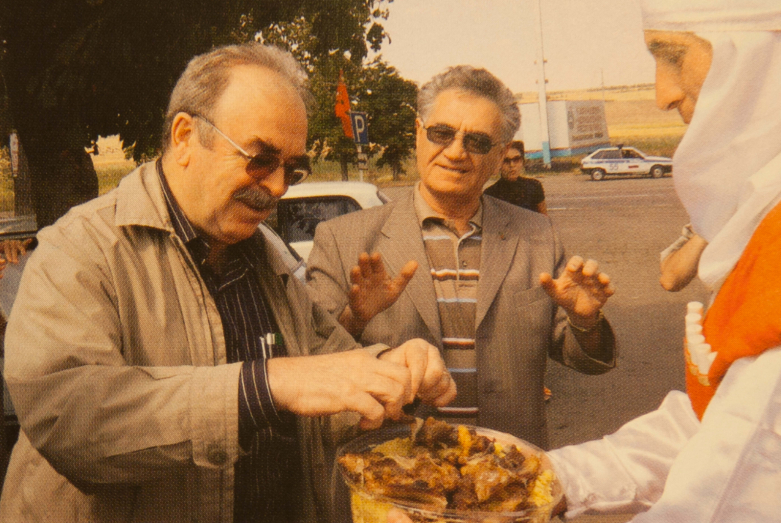
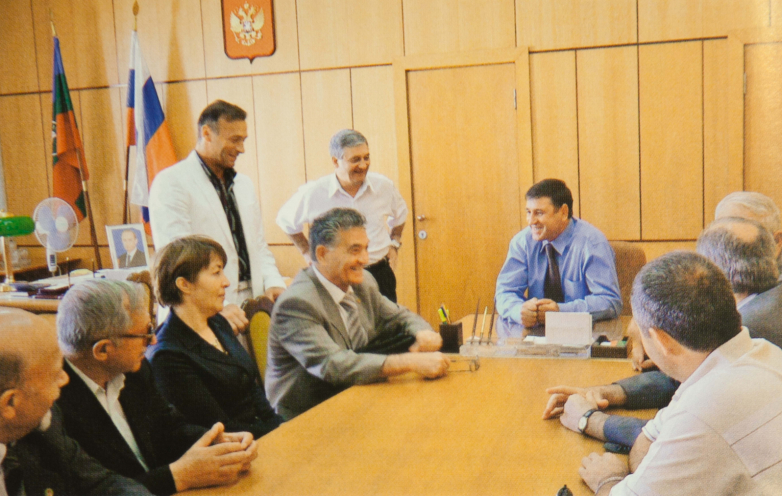
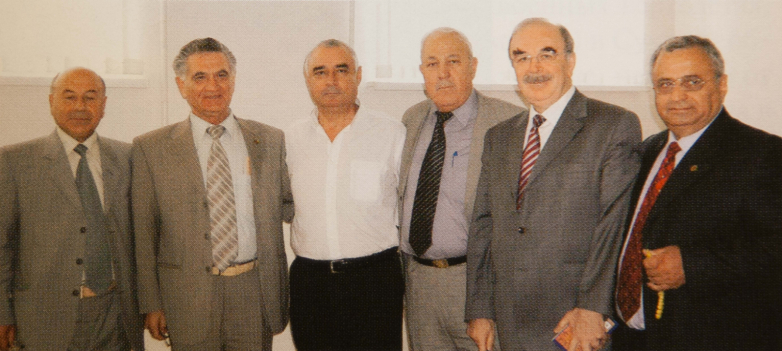
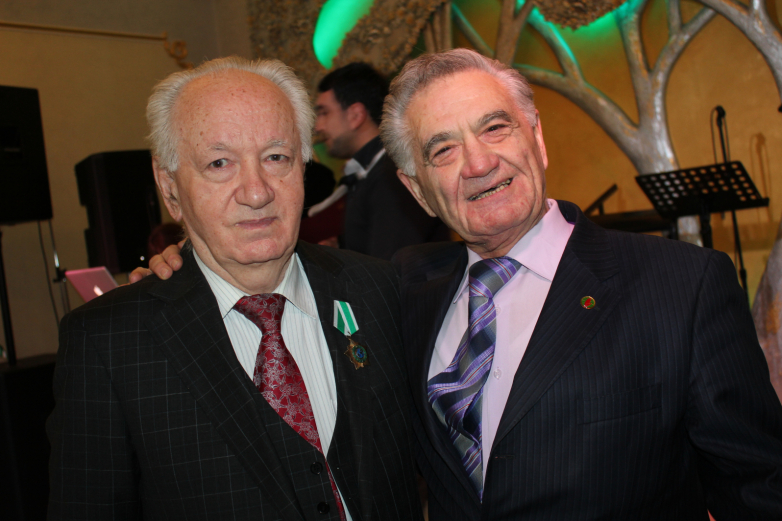
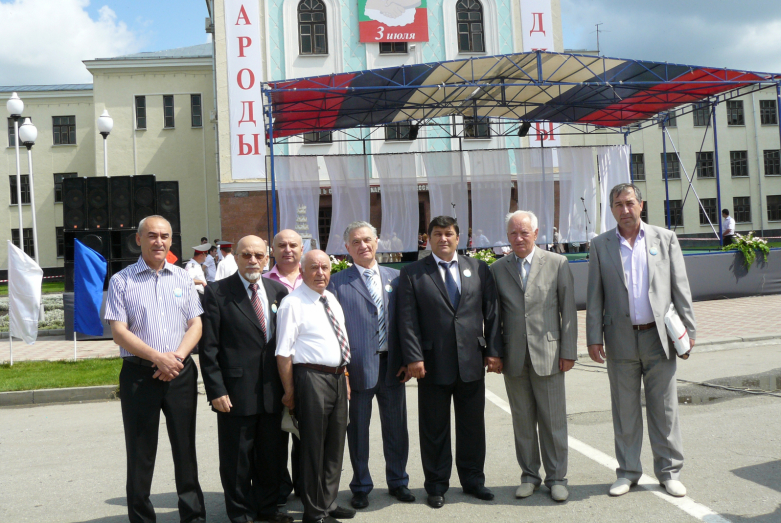
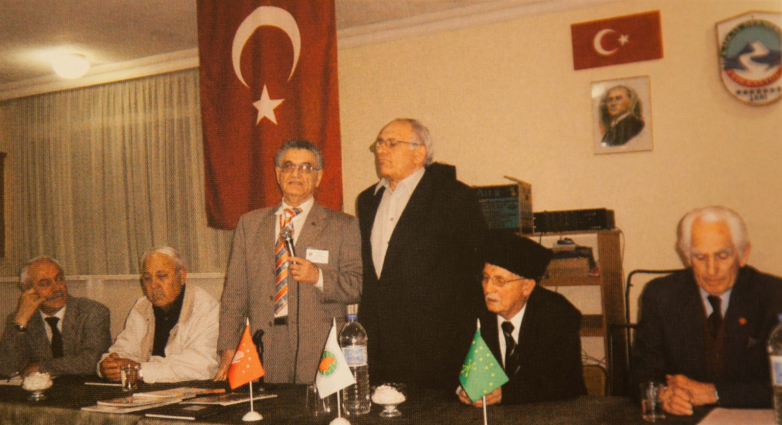
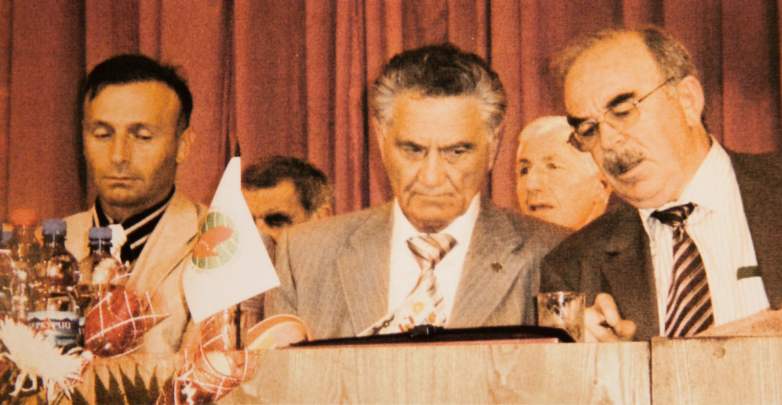
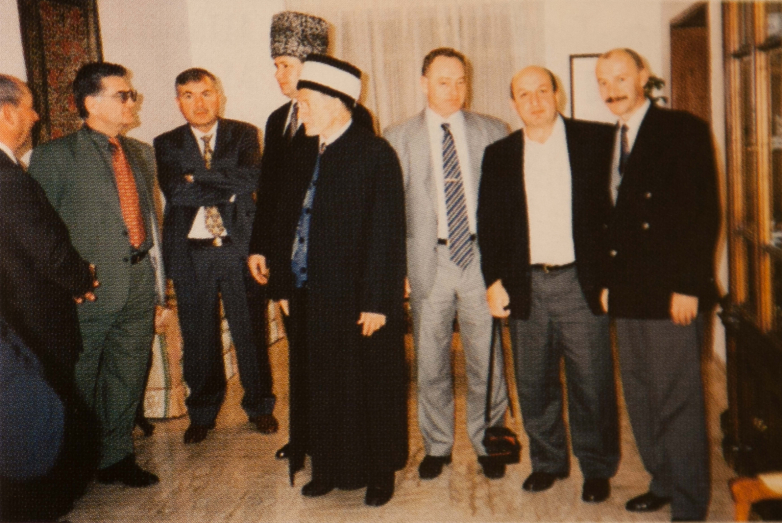
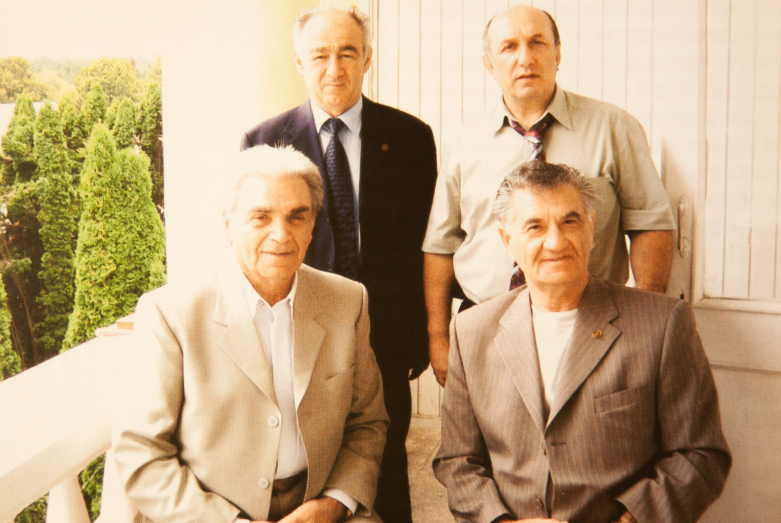
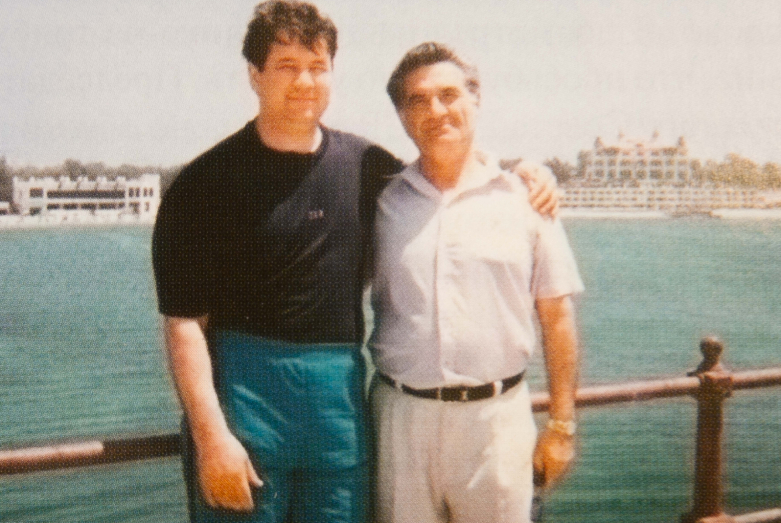
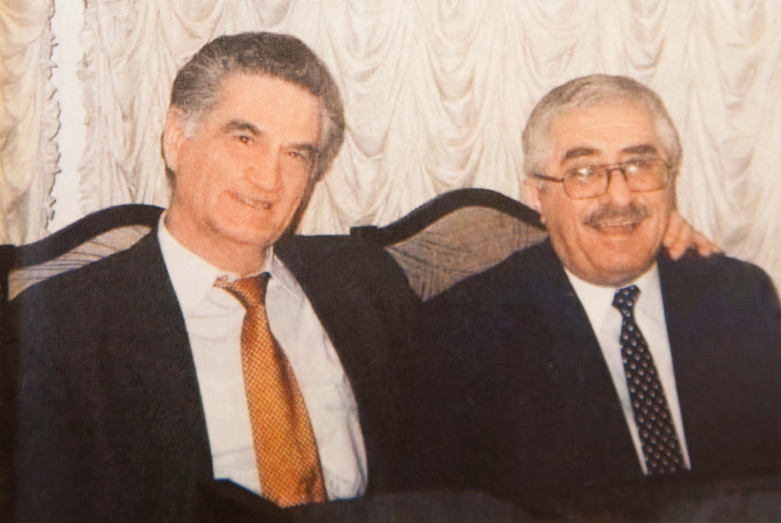
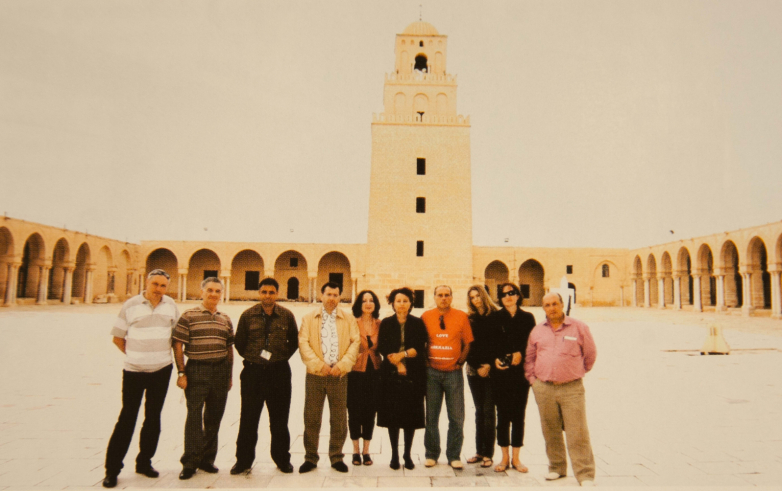
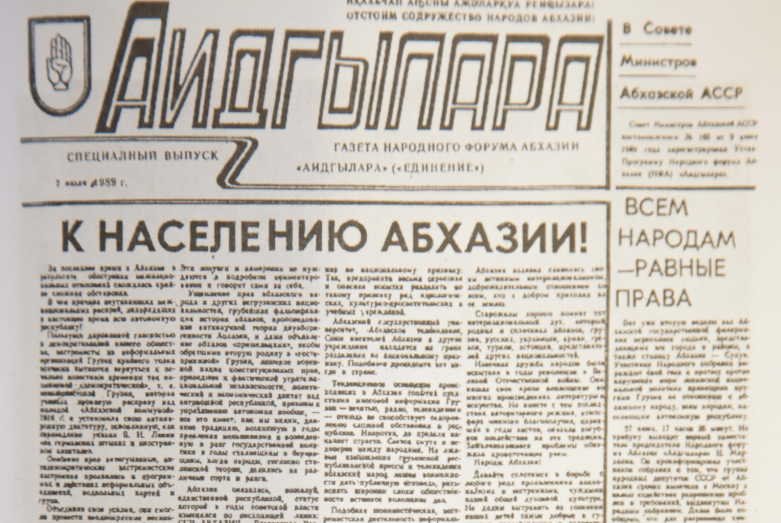
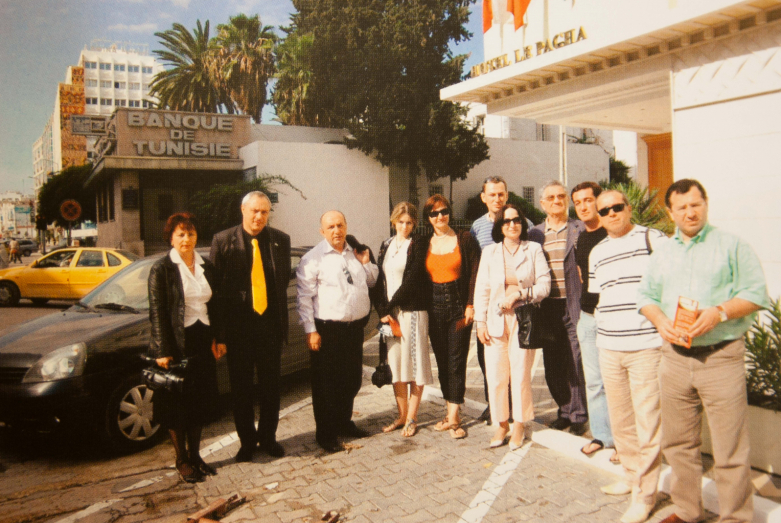
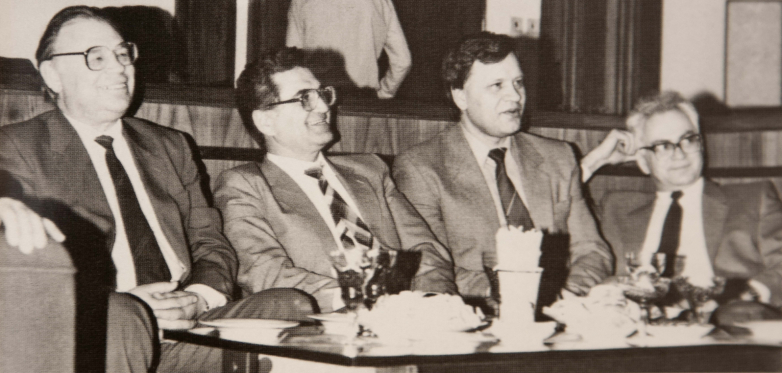
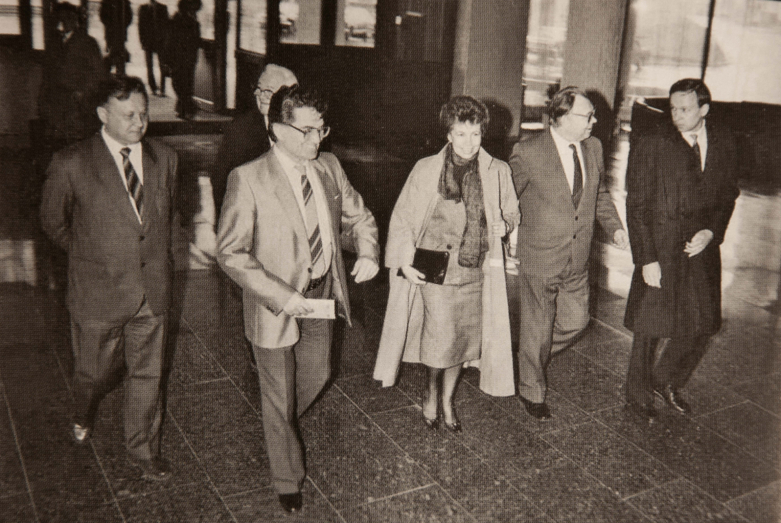

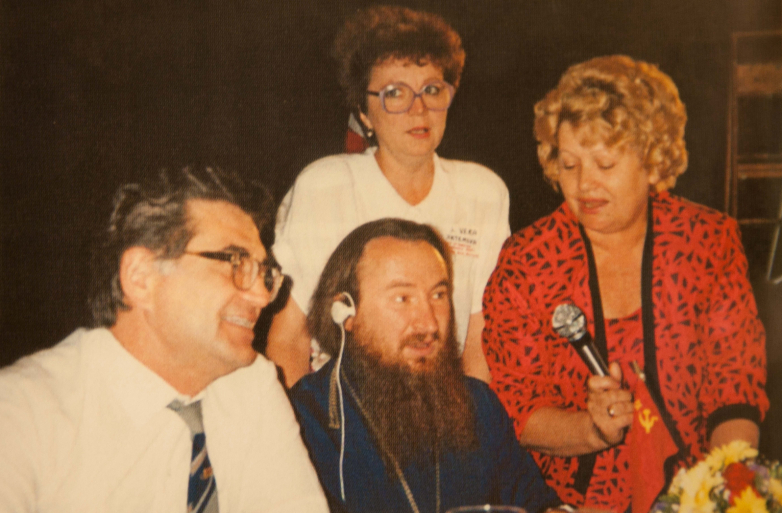
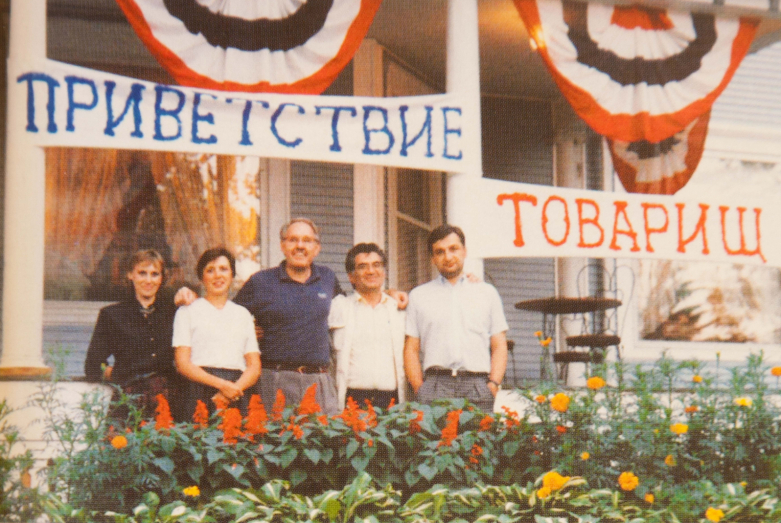
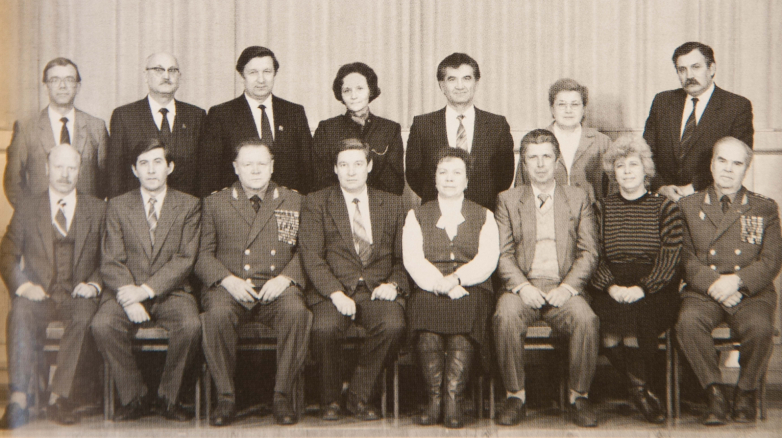
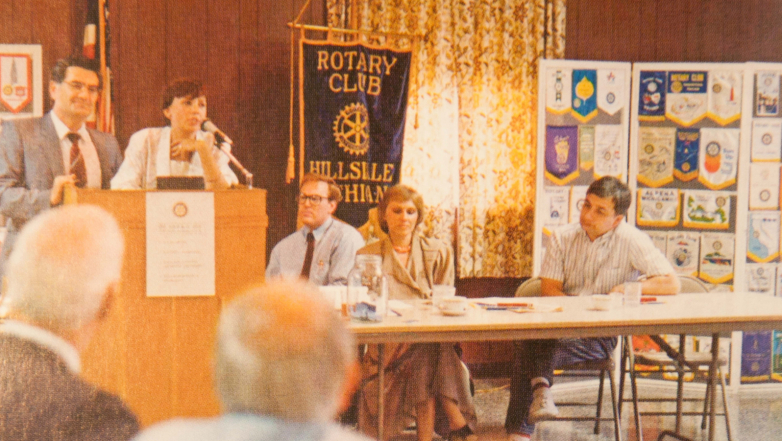
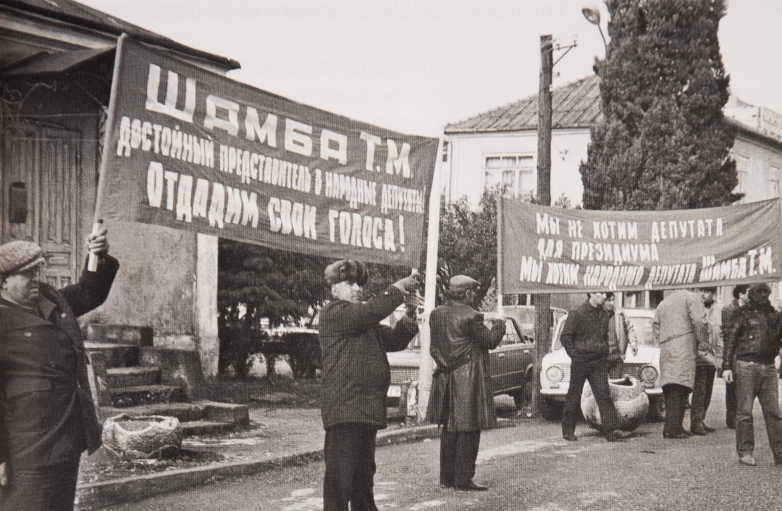
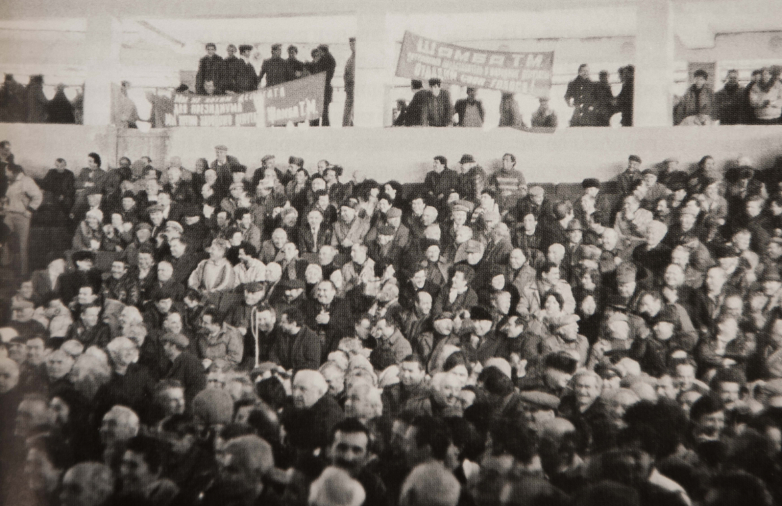
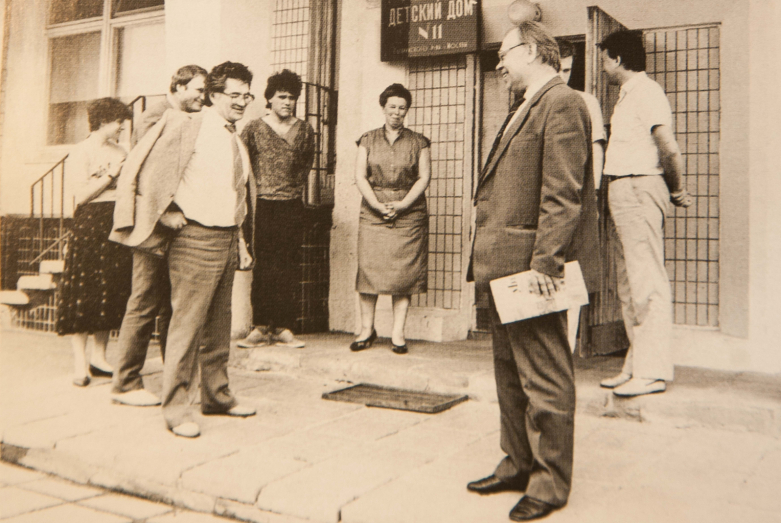
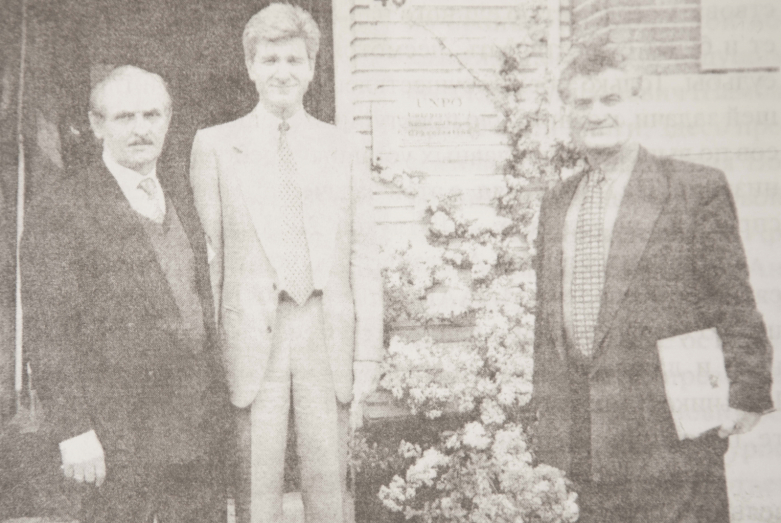
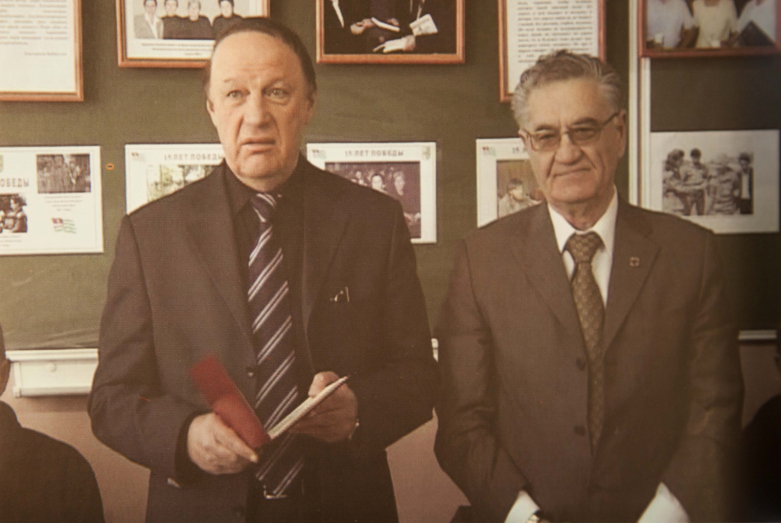
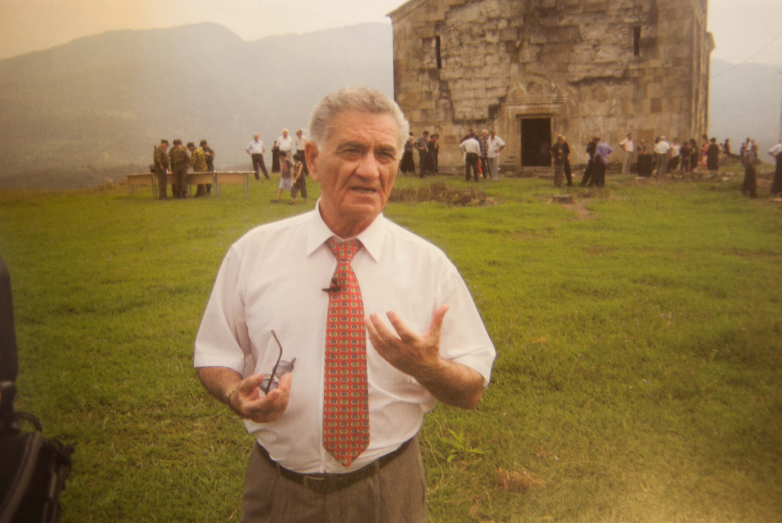
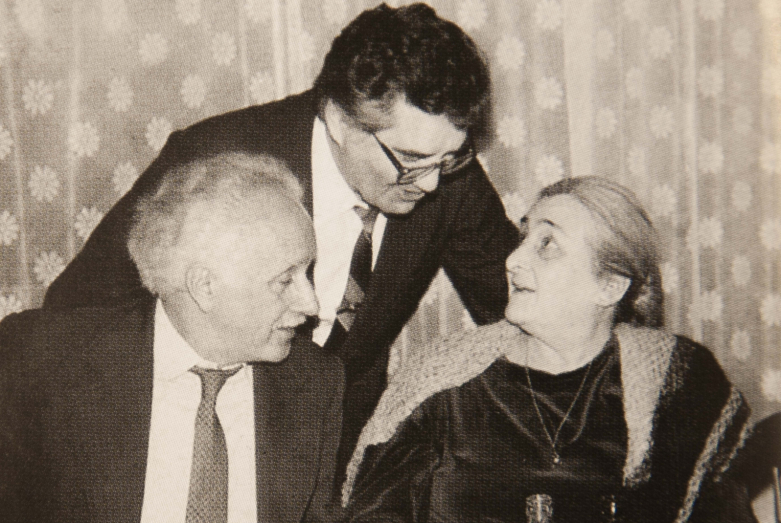
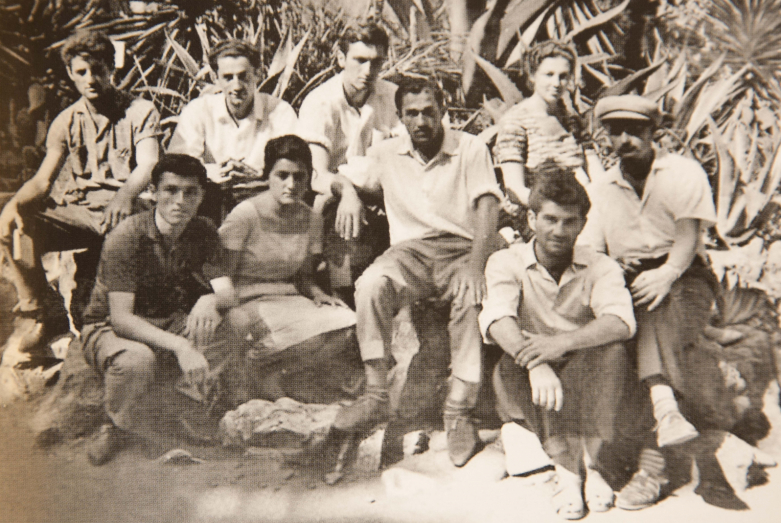
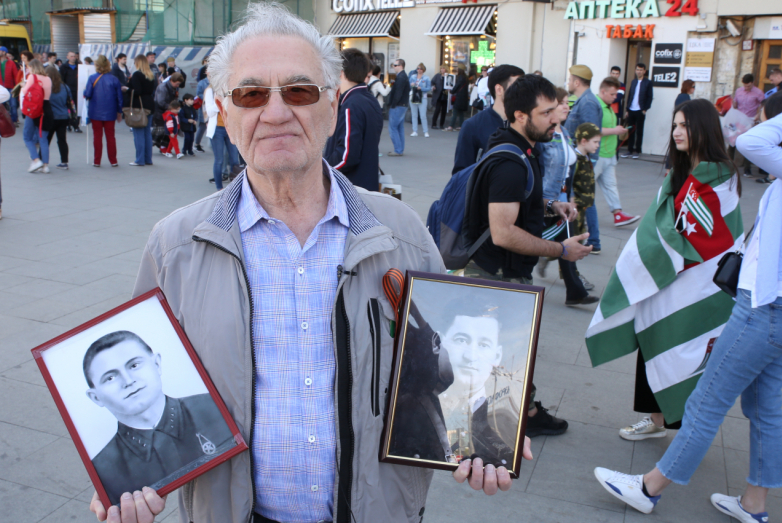
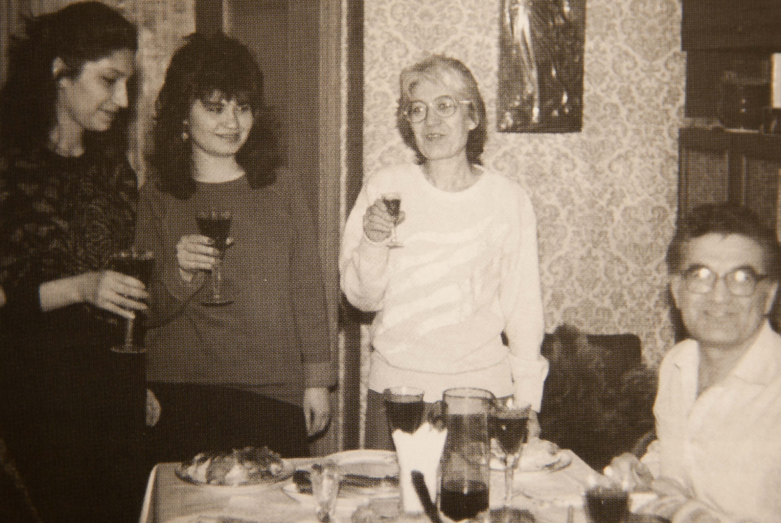
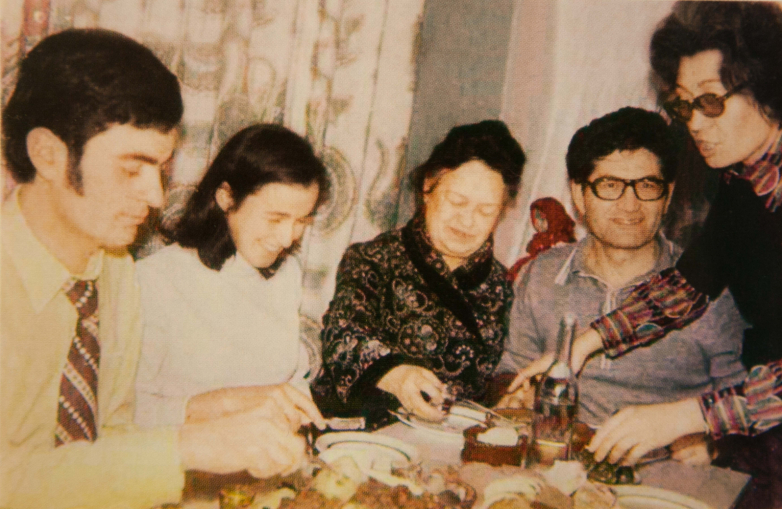
to login or register.